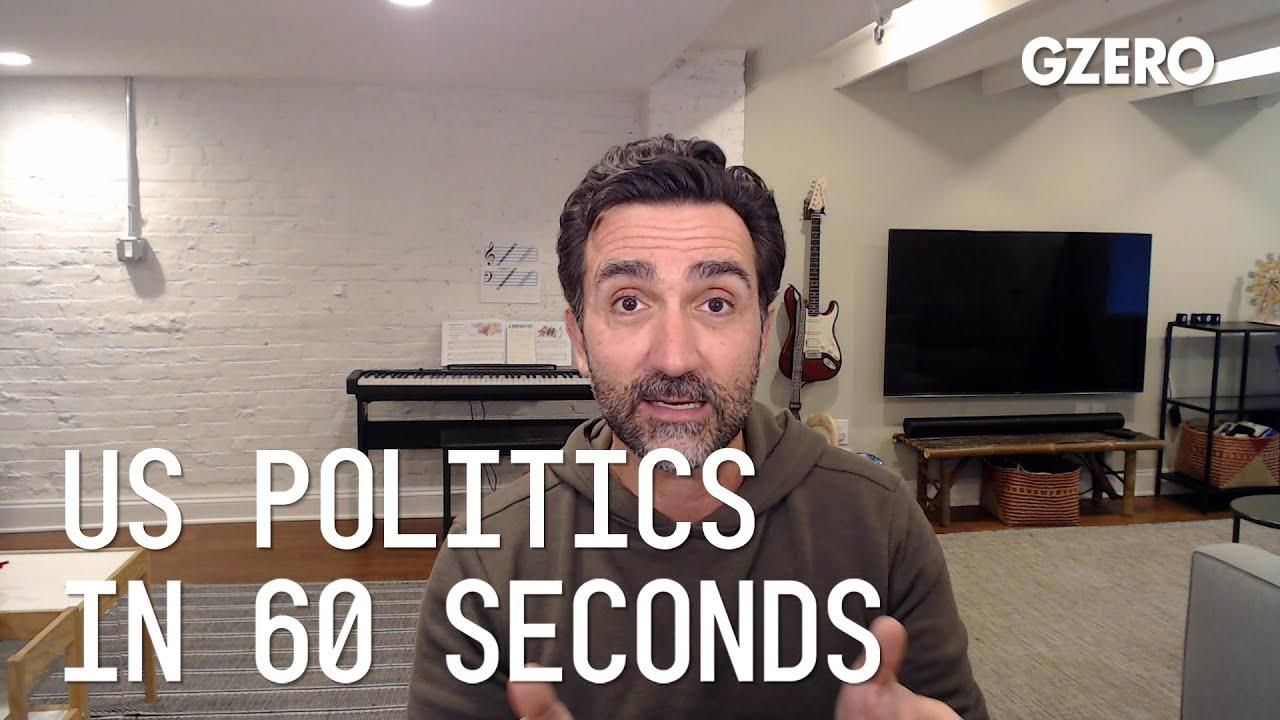US Politics In 60 Seconds
SCOTUS confirmation hearings no longer serve a purpose

Supreme Court Hearings Served No Purpose & Could do Harm | US Politics: In60 | GZERO Media

Jon Lieber, head of Eurasia Group's coverage of political and policy developments in Washington, discusses the Supreme Court hearings.
Today's question. Have the Supreme Court hearings lost their purpose?
Blanketing cable news this week are the Senate Judiciary hearings to confirm Ketanji Brown Jackson to the Supreme Court. Brown Jackson surpasses anyone's standard of a qualified Supreme Court justice. She's educated at the best law schools. She's been a Supreme Court clerk, a public defender, a trial court judge, and a circuit court judge. She's at least as qualified as anybody else serving on the court today. And nobody questions that she has a top notch intellect and character to sit on the Court.
So the questions she's facing this week at the hearing aren't about her qualifications. They are at best about her ideology, and at worst about things that have nothing to do with her, like culture war battles over the definition of a woman. And like every recent Supreme Court nominee, she's learned to be very careful and circumspect in describing her ideology so she doesn't give the other side anything to use against her.
So that raises a question. What's the point of having these hearings? Nearly every Democrat has already pre-committed to voting for her. And though they won't say it, nearly every Republican has already pre-committed to voting against her. There's no upside for members of either party in not voting with the team on this issue.
The hearings are generating little heat and even less light, because the Democrats basically have to support President Biden's pick. They're left to give fawning softballs that give the judge a chance to repeatedly emphasize her qualifications. And the Republicans are essentially showboating, hoping to create tweet worthy clips to justify their no votes in the proper partisan frame. Before Republicans changed the rules in 2017 to allow the Supreme Court justices to be confirmed on simple party line, majority votes, the opposition party would use the nomination hearings to ask tough questions, but at least some of them were looking for excuses to vote for a judge, since at least some of the minority party would be needed to confirm a judge. Indeed, all of President Obama and President Bush's appointees received bipartisan votes, and in the Clinton administration, the Supreme Court votes were nearly unanimous.
But since that time, the nomination process and the hearings have turned into purely partisan affairs. The three judges nominated by President Trump received only four Democratic votes, and it's unlikely that Brown Jackson received that many votes from Republicans. You could argue that there was something unique about each of the Trump justices, but the only thing unique about Brown Jackson is that she's clearly deserving of the job, but she will struggle to find a single Republican willing to say it.
So the hearings today served no purpose and could very well do harm in that they explicitly drag justices into these bitter partisan battles and help erode the neutrality of the courts, or at least the perception of the neutrality of the courts. Judges now are frequently framed as partisan ideologues who are committed to one political party or another, something that Justice John Roberts said he explicitly wanted to avoid. And that will have consequences for years to come, if the courts are asked to rule on voting rules or are asked to weigh in on contested elections in the coming years.
Americans are moving less — and renting more. Cooling migration and rising vacancy rates, especially across the Sunbelt, have flattened rent growth and given renters new leverage. For many lower-income households, that relief is beginning to show up in discretionary spending. Explore what's changing in US housing by subscribing to Bank of America Institute.
1,170: The number of high-rise buildings in Kyiv that were left without heating following a barrage of Russian attacks last night on Ukraine’s capital and its energy facilities, per Kyiv Mayor Vitali Klitschko.
Over the past five years, Haiti has endured extreme political turmoil, escalating violence, and one of the world’s worst humanitarian crises.
Microsoft unveiled a new set of commitments guiding its community‑first approach to AI infrastructure development. The strategy focuses on energy affordability, water efficiency, job creation, local investment, and AI‑driven skilling. As demand for digital infrastructure accelerates, the company is pushing a new model for responsible datacenter growth — one built on sustainability, economic mobility, and long‑term partnership with the communities that host it. The move signals how AI infrastructure is reshaping local economies and what people expect from the tech shaping their future. Read the full blog here.